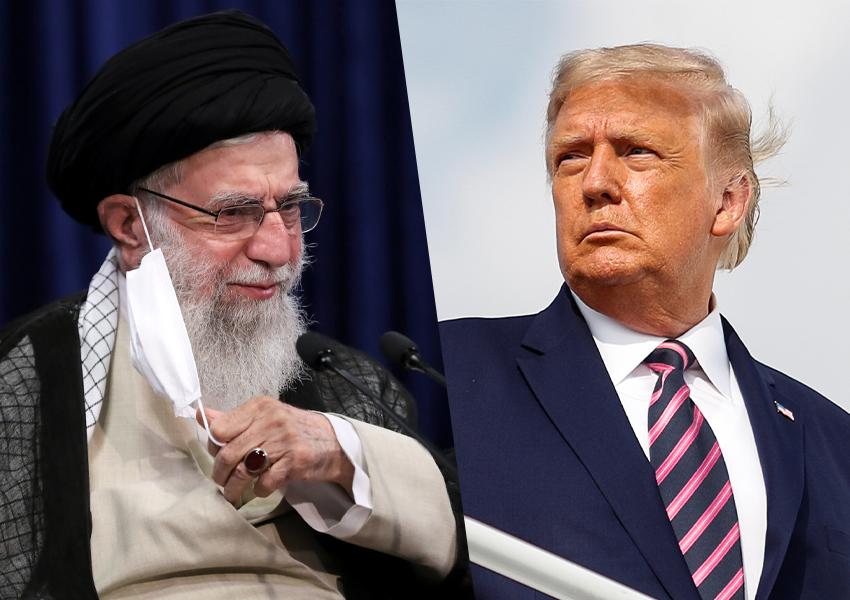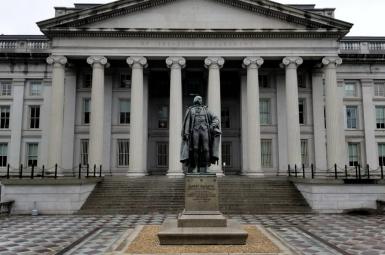
US Says All UN Sanctions On Iran Restored As Diplomatic Confrontation Looms
The United States has unilaterally announced that all UN international sanctions against Iran have been restored, after other members of the Security Council opposed a US move to officially declare Iran in violation of the 2015 nuclear agreement and reimpose those sanctions.
Secretary of State Mike Pompeo declared Saturday, September 19 that at 8:00 pm Eastern Time, 30 days after it gave notice to trigger the “snapback” option of the nuclear agreement, it considers all previous UN sanctions to be in effect.
Washington’s European allies, the United Kingdom, Germany and France, as well as its rivals, Russia and China have opposed the move and an unpredictable diplomatic confrontation is expected to ensue during the upcoming UN General Assembly.
The UN sanctions imposed in 2011 were mostly suspended after Iran and world powers reached a deal in 2015 to greatly limit Tehran's nuclear program.
The 2015 nuclear deal or the Joint Comprehensive Plan of Action (JCPOA) includes a provision that any participant of the agreement can trigger a mechanism to reimpose international sanctions on Iran if it believes Iran has violated the terms of the agreement. However, the United States pulled out of the JCPOA in May 2018 and the other signatories argue that it can no longer demand a return of sanctions.
“The United States took this decisive action because, in addition to Iran’s failure to perform its JCPOA commitments, the Security Council failed to extend the UN arms embargo on Iran, which had been in place for 13 years,” Pompeo said in a statement released at precisely 8 p.m.
Iran on Sunday condemned the US declaration. Foreign ministry spokesman Saeed Khatibzadeh said, "We expect the international community and all the countries in the world to stand against these reckless actions by the regime in the White House and speak in one voice.
The EU foreign policy cheif Josep Borrell repeated the blocks previous position. US unilaterally ceased participation in #JCPOA on 8 May 2018 and has subsequently not participated in any JCPOA-related activities. It cannot, therefore, be considered to be a JCPOA participant State and cannot initiate the process of reinstating UN sanctions under UNSC res. 2231," he tweeted.
Confrontation seems inevitable, since the US says it will enforce the UN sanctions against anyone violating them. “The United States expects all U.N. member states to fully comply with their obligations to implement these measures,” Pompeo said. “If U.N, member states fail to fulfill their obligations to implement these sanctions, the United States is prepared to use our domestic authorities to impose consequences for those failures and ensure that Iran does not reap the benefits of U.N.-prohibited activity.”
The Trump administration has proved since 2018 that its unilateral sanctions can work, as both China and Russia and international corporations have either greatly reduced their ties to Iran or completely stopped doing business with Tehran.
But there are crucial differences with declaring American sanctions and unilaterally demanding compliance with international sanctions others dismiss as “illegal” and have vowed to ignore. It is to be seen how far US financial and economic power can stretch to implement such a policy.
It is worth noting that current American sanctions are already effective in crippling Iran’s economy and it is not clear how much more restrictive the unilateral imposition of international sanctions can be.
Preventing international companies to do business with Iran, specially buying its oil and paying for it, is already working effectively. But confrontation can happen if the US finds a government or a state company in violation of additional sanctions. In such a case, Washington has to penalize governments.
Iran seems to be pinning its hopes on the US presidential elections. The Democratic candidate Joe Biden has rejected Trump’s policy of “maximum pressure” against Iran and has vowed to use multilateral diplomacy to resolve disputes with Tehran.
Another area of possible confrontation would be any Russian and Chinese steps to sell arms to the Islamic Republic. A UN arms embargo will expire on October 18 and US efforts to extend the restriction through the Security Council have failed. The Trump administration, however, says it will enforce the arms embargo no matter what and parties engaging in weapons deals with Iran will be held accountable.
Iran says its diplomacy has succeeded and the US has been forced to act unilaterally, which makes its efforts “null and void” without any legal standing. Iran also sent a letter to the Security Council on the same day reiterating its position.








